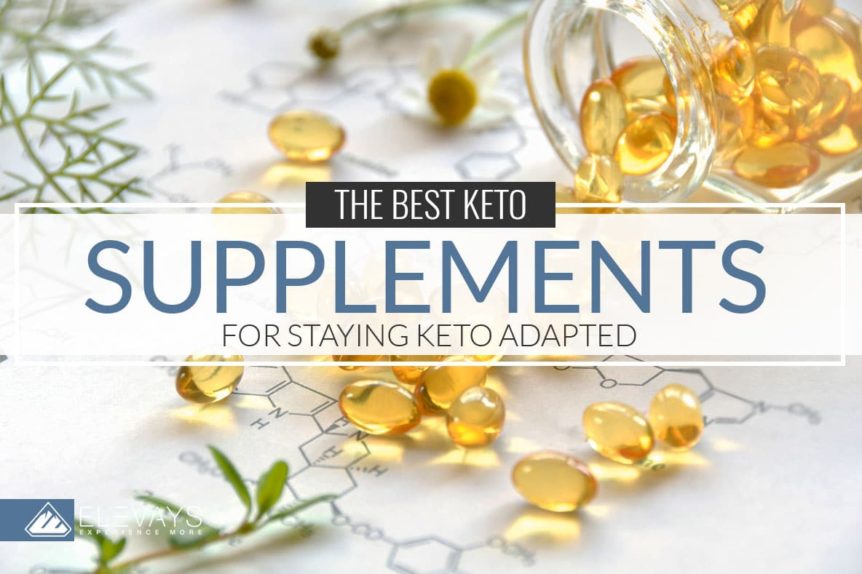Most of us are familiar with a Keto diet meaning the consumption and assimilation of an organic compound in our diets that contain a carbonyl group =C=O bonded to two hydrocarbon groups, made by oxidizing secondary alcohols. The Oxford version or definition of it is also pretty much the same. Now let’s move on to why use keto supplements instead of the original sources in the daily rituals of our diet.
A Supplementary guide
Keto supplements are not necessarily to be taken if on a keto diet but one plausible reason would be that they make things very easier. How? As there exists keto flu symptoms that need to be curbed by consuming its supplements used for treating it and thus increases ketone levels in the body. Let’s have a glance at some top 5 keto supplements.
- Magnesium
Magnesium is an energy boosting mineral known widely for keeping a regulatory check on sugar and blood levels that form the basis of human immune system. Well done research points out the fact that on a ketogenic diet, it becomes a tedious and difficult task to mete out one’s magnesium requirements for the sole reason that most of the magnesium-rich foods such as beans and fruits are also high in carbs which, on the other hand might cause obesity problems.
For reasons like these, it is well advised to include, increase and supplement magnesium in your ketogenic diet. It also helps reduce certain muscle cramps and body aches, sleeping disorders and a sense of irritation – signs usually experienced by those resting on a ketogenic diet. If you wish to enhance your magnesium intake, here are some keto-friendly foods rich in magnesium that will gradually help you improve and focus on your low-carb intake. These are –
- Avocado
- Spinach
- Pumpkin seeds
- Mackerel
- Swiss chard
- MCT Oil
MCTs, known as medium-chain triglycerides, are a famous supplement among keto consumers or dieters. They have an entirely different metabolism than their long-chain counterparts that are mostly found in fatty foods. MCTs can be broken down with the help of your liver and from there they quickly run through your bloodstream where their source can be implemented for the use of fueling body and brain muscles.
The richest source of MCTs is our popular coconut oil as it contains around 17% fatty acids accompanied with metabolic benefits.
General trivia also says that it has been known to promote weight loss and increases a sense of being full, complete and lightweight which, in the long run, can prove to be useful in a ketogenic diet too. Many a times, MCT oil is also used by easily adding it to protein shakes, essential vitamins or diet smoothies or simply taken as a spoonful. But it also has its various side effects as in it might cause nausea or diarrhea symptoms in some.
- Digestive Enzymes
Since the keto diet may generally contain about 75% fat, people used to these diets do have another health oriented option of consuming digestive enzymes to reduce the amount of fat in their consumption. One of the frequent damages done to those on a ketogenic diet is the rocketing fat content which becomes a tough weight on body metabolism. Digestive enzymes can help improve and reduce the digestive issues you might be experiencing with.
It is also known to undermine the causal effects of diarrhea, bloating and nausea if and when someone turns towards a ketogenic dietary consumption. These enzymes break down lipases (fats) and proteases (proteins) which in turn help optimize the process of digestion. By taking digestive supplement, you not only develop better amounts of fats and proteins but also they help relieve you of the various symptoms in relation with transferring to a keto diet.
- Greens Powder
Including leafy greens in our daily meals is something each one of us should focus on. Vegetables contain a wide range of essential and effective minerals, vitamins and robust herbivorous compounds that help fight inflammation, scarring and disease risk. It is not mandatory that every keto-diet follower consumes less vegetable intake but it does make one fall out on consuming basic herbs.
Thus, a quick and easy way to replenish your dietary habits with green intake is by adding a greens powder to supplement your body regime. This powder consists of a mixture of finely powdered plants like spinach, broccoli, kale, wheatgrass and more.
One can also put more emphasis on boosting their meals and snacks with whole food, low carb veggies. Green powders contain powdered forms of beneficial plants and herbs thus providing a reliable source of nutrients to keto-worshippers.
- Athlete’s caffeine
There is a common trend and pattern of most athletes following a hardcore keto diet. An athlete is someone generally on the prowl of discovering new and profound ways to enhance his/her body metabolism and increase the muscular needs. To meet all these set standards, what is needed is just an extra cup of coffee to their day. An additional cup of coffee or green (herbal) tea can benefit one’s athletic performance and help boost and enhance energy levels. This is especially in consideration to those transitioning to a keto diet. Caffeine and Tannin help preserve body and muscle mass and prevent conditions of fatigue.
To sum up –
The aforementioned supplements can make transition easier to a much healthy keto diet beneficial in both personal and professional lives. It kind of adds an aesthetic factor to the lives people lead on a daily basis as a sound body positively helps create a sound mind. Consuming these supplements can surely help optimize and boost nutritional levels which in turn permit you to proliferate abundantly while on a keto diet!
